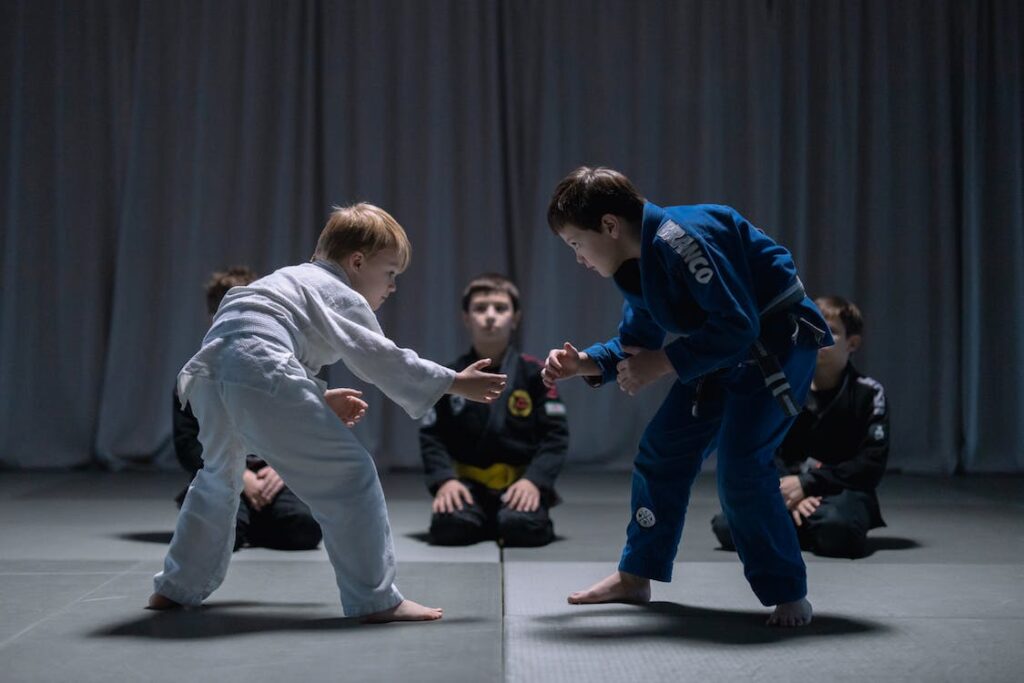Children grow fast. Time flies, and all we can see is what kind of personality they’ve developed through the years. Kids need all the affection and help from their parents while growing.
But do we manage our time according to our kids, or are we stuck in our activities? Somehow, we allow our kids to do whatever they want, including playing video games all day. In no time, they transfer into addicted “gamers.”
Gaming Addiction
According to WHO, it is a mental disorder that affects kids, teenagers, and adults, manifesting in possessive, obsessive, and uncontrolled use of tech devices for playing video games.
It’s a compulsive disorder with health consequences. Studies show that nearly 10% of children are gaming addicts. It somehow seems funny how an innocent video game can affect our kids’ life. We can’t blame technology or children for gaming addiction. We can only blame ourselves.

Symptoms of Gaming Addiction
It is better to prevent than to cure. If we recognize the following changes in our kid’s behavior is time to act and stop gaming addiction before it gets serious:
- Children isolate themselves in their rooms;
- Unawareness of time;
- Constantly play on their computer;
- Insomnia;
- Lack of concentration and focus at school and home;
- Behavioral changes;
- Aggression and anxiety when they can’t play the games;
- Depression if they lose the game;
- Low hygiene habits;
- Distraction and coordination problems;
The first sign that can alert us is our kids’ absence from the living room, spending more time in the kids’ room with blinds down (even when the weather is sunny). After this, the problems multiply and it is devastating for any parent who has a gaming-addicted child.
Finding the Root of the Problem
When we see our kids in this unpleasant situation, we must react and try to save our kids from the gaming world. It is hard because while they play, their brain produces serotonin and dopamine (hormones of happiness), and we destroy that feeling by taking away the tech. In the following part of the article, we will look at ways to support your child in battling gaming addiction.

Shutting Down the Computer
You can’t just unplug the computer. Parents shouldn’t treat addictions with radical methods. Instead, develop strategies and fight smartly against the invisible enemy.
Open Conversations

Dealing with addiction demands all of our kids’ attention and communication. Firstly, you should approach them politely and gently because you don’t want your kids to feel fear and hatred. Don’t use punishment to resolve this problem. Instead, provide examples and explain the problem. If both sides (kids and parents) agree, you can set screen-time limits.
Gain your children’s trust, present them with all the facts, and let them choose whether they use tech productively or only use it for gaming. I wonder if bribing them with sweets can help!
Chores and Activities
Once you agree that limiting screen time contributes to living a better life, your children will start using time more efficiently, so they’ll have more time to take up more activities and chores. Introduce them to:
- Cooking together;
- Cleaning together;
- Outdoor activities;
- Trips to restaurants, museums, parks, and other fun places;
- After-school activities, clubs, and courses;
- Family bonding with board games and movie nights;

The point is that parents must engage themselves and be with their kids. Your presence means the world to your child. They don’t feel abandoned, have someone to lean on, and cooperate easily.
If we can achieve our goal and our kid has limited screen time, we have had great success as modern-day parents. But if we don’t succeed our kids’ addiction problem might be bigger than we thought.
Ask for Professional Help
We live in a world where seeking professional help (psychiatrist, therapist) is taboo and seldom talked about. But if your children’s mental health condition worsens and they develop a serious addiction, only therapists and counselors can help solve the problem.
A therapist can talk openly with our child, review the problem and solve the problem, using behavioral therapy, group therapy, and sometimes including medicaments.
Getting Involved in your Children’s Gaming Life
We all know that we can’t eliminate video games from our kids’ life. But, we can reduce the time they spend playing video games by:
- Playing video games together;
- Supporting the activities they do and encouraging them to embrace their talents;
- Managing time together by making daily to-do lists;
- Letting children take the lead and make decisions with our help;
- Debating and educating children about the factual dangers of gaming and the digital world, like cyberbullies and online predators;

Conclusion
We are all busy parents aiming to provide our kids with a safe and comfortable living. Our kids should appreciate our effort and respect our demands. Playing video games will not provide them with a secure future, but education will.
Of course, you can still let your children relax with their favorite game for a few hours. But it is crucial to sit down with your child, especially if it already has a gaming addiction, and lead them to a healthy and safe future.
FAQ
What are the signs that my child may have a gaming addiction?
Signs that your child may have gaming addiction are:
- Distraction, deconcentration, and lack of focus;
- Your child thinks only about the video game;
- Lack of sleep;
- Isolation;
- Lack of communication and organizational skills;
- Unusual behavior;
- Frequent signs of depression, anxiety, fear, or panic attacks;
- Physical changes (underlines, swollen eyes, posture problems, weight gain, etc.);
How can I talk to my child about their gaming addiction in a supportive and non-judgmental way?
Your approach determines your kid’s reaction to the conversation about gaming addiction. Your kid needs to understand that you are not the enemy and you approve of gaming, but only when it’s limited.
How can I balance my child’s love of gaming with the need to limit their screen time?
I always like to say that the answer to every problem lies in nature. So, introduce your children to the beautiful outdoors, and they’ll feel less attached to gaming as a way of entertainment.
How can I help my child build healthy habits and routines that don’t involve gaming?
You can always try embracing your children’s talent. If they’re good at art, sign them up for an art club. If they like sports, let them play for a sports team. Also, let your children know the risk factors of overtime usage of tech.
What role can therapy or counseling play in treating gaming addiction?
When parents can’t help kids with a gaming addiction problem, the therapist can solve our problem by limiting, reducing, and eliminating our kids’ gaming addiction. That’s why we call them doctors after all.
ALSO READ: How to Prepare Children for the Future of Technology and its Impact on Their Lives







